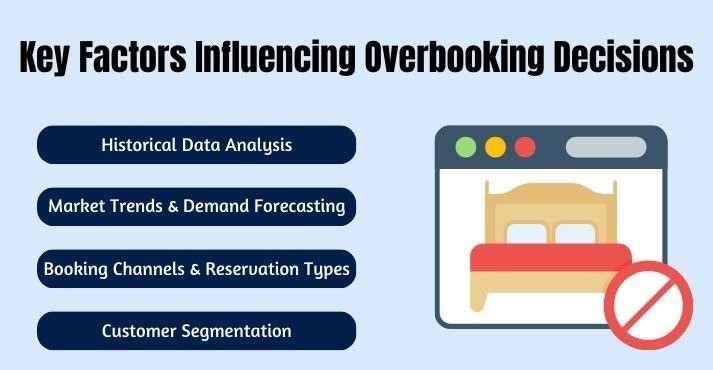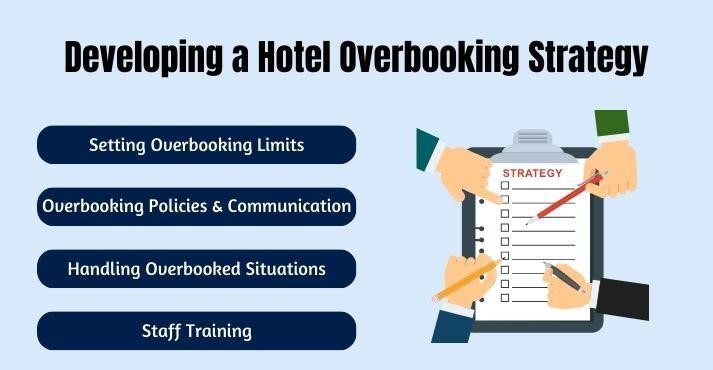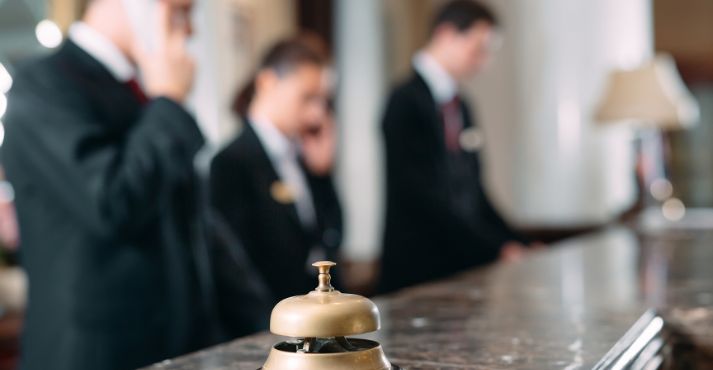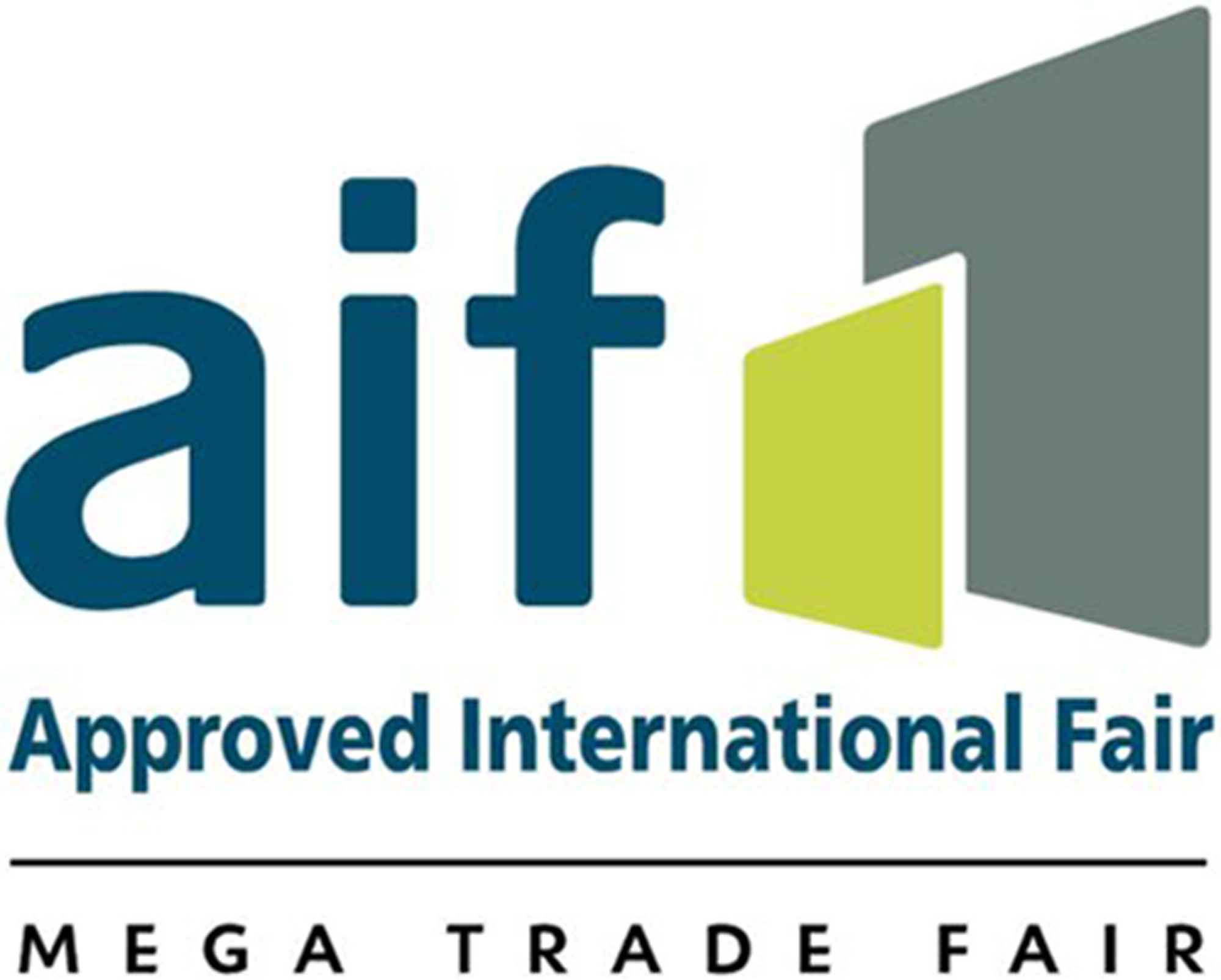Can overbooking in hotels be an intelligent way for hotels to make more money, or is it just a bad idea that causes problems?
Imagine booking a room at your favorite hotel, but when you arrive, they tell you it’s complete. This might sound like a mistake, but for hotels, this is something they often plan. They call it hotel overbooking, and it’s when they accept more reservations than rooms available.
Hotels do this to ensure they don’t lose money when people cancel their bookings, don’t show up, or leave early. But why do hotels overbook, and how do they ensure it doesn’t lead to angry guests? Let’s find out!
Understanding Overbooking in Hotels
Why Do Hotels Overbook?
Overbooking is a strategic practice in hotel management where more reservations are accepted than the actual number of available rooms. Hotels usually overbook to protect themselves from losing money when guests cancel their bookings or don’t show up.
For example, a hotel may have 100 rooms, but it might accept 110 bookings because it expects some guests not to attend. This way, even if some rooms are empty, the hotel still makes money from the extra bookings.
Hotel reservation problems, such as last-minute cancellations are widespread. So, instead of having empty rooms, hotels use overbooking to fill them.
Hotels base their decisions on how much to overbook using their historical data. This means they look at past information, such as how many people didn’t show up or canceled their bookings in previous years.
Hotels also use data about their occupancy rate to help decide how many rooms they should overbook. According to the occupancy rate, hotels know how full their hotel is on average over time.
The Risks of Overbooking
Overbooking isn’t without its risks. One of the biggest problems with overbooked hotels is that guests might get very upset when they show up and find no room for them.
Imagine arriving at a hotel after a long trip, only to be told you can’t stay because the hotel is full. This could lead to negative reviews online, hurting the hotel’s reputation.
Hotels also have to consider hotel overbooking compensation. When a hotel doesn’t have enough rooms for all its guests, it often needs to offer compensation. This could mean paying the guest to stay at another hotel, giving them a free meal, or offering a discount on their next stay.
Managing hotel overbooking also requires a lot of planning and coordination. The front desk needs to be ready to help guests who can’t get to their rooms, and the hotel has to plan to move these guests to other hotels if needed. If the hotel handles these situations well, it can avoid big problems for guests and staff.
Key Factors Influencing Overbooking Decisions

1. Historical Data Analysis
One of the most important things that helps hotels decide how much to overbook is their historical data.
This data includes past occupancy rates, the percentage of guests who cancel their bookings, and the number of people who don’t show up. Hotels use this information to determine the best overbooking strategy.
For example, if a hotel finds that 8% of its guests canceled or didn’t show up last year, it might overbook by 8%. This ensures that their rooms don’t stay empty, and it can still make money even if some guests don’t show up.
Revenue management is another important tool for analyzing how much a hotel should overbook. Revenue management systems track booking patterns and help hotels make intelligent decisions about pricing and overbooking.
2. Market Trends and Demand Forecasting
Another thing that helps hotels decide how much to overbook is looking at market trends and demand. Significant events like concerts, festivals, or conferences sometimes cause many people to book hotels in a specific area.
Hotels use demand forecasting to predict how many people might book rooms during these times. By keeping track of events and busy seasons, hotels can decide when to overbook and when to be more careful.
3. Booking Channels and Reservation Types
Not all hotel bookings are the same. Hotels get bookings from different sources, such as direct bookings from their own website or online bookings through Online Travel Agencies (OTAs) like Expedia or Booking.com.
Some bookings are non-refundable, meaning guests can’t cancel and get their money back. In contrast, other bookings are more flexible and allow guests to cancel without a penalty.
Hotels need to consider the type of booking and where it’s coming from when deciding how much to overbook. For example, if most bookings are non-refundable, the hotel might overbook a lower percentage because it knows those guests are more likely to show up.
On the other hand, if the bookings are flexible and guests can cancel easily, the hotel might feel more comfortable overbooking.
Using tools like hotel distribution channels can help hotels manage their overbooking strategies by allowing them to track where the bookings are coming from.
4. Customer Segmentation
Another key factor in overbooking is understanding the different types of guests who book rooms. Business travelers, for example, are more likely to stick to their plans, while leisure travelers might change or cancel their bookings at the last minute.
Hotels also segment their customers based on how they book. For example, guests who book directly through the hotel might be treated differently than those who book through a third-party website.
Knowing which guests are most likely to cancel can help hotels set smarter hotel overbooking limits.
Developing a Hotel Overbooking Strategy

1. Setting Overbooking Limits
One of the most important steps in developing a good hotel overbooking strategy is deciding how much to overbook. The hotel must determine the right balance based on size, location, and past booking data. This is called setting overbooking limits.
A small hotel might only overbook a few rooms, while a big hotel in a busy city might feel more comfortable overbooking by a larger number.
By setting the right overbooking limit, hotels can ensure they aren’t turning away too many guests while still making the most of their available rooms.
2. Overbooking Policies and Communication
Another essential part of managing overbooking in hotels is having clear policies. These policies should explain what the hotel will do if they have more guests than rooms.
Hotels also need to communicate with guests about the possibility of overbooking. Letting guests know beforehand or as soon as the problem arises can help reduce frustration.
Clear communication is key. Hotels can contact guests by phone or email to inform them if there’s an issue with their reservation, and they should be ready to offer solutions, such as booking the guest into a nearby hotel or providing a refund.
3. Handling Overbooked Situations
Relocation Strategies
One way hotels handle overbooked situations is by having relocation strategies in place. This means they have agreements with nearby hotels to send guests if they don’t have enough rooms. This process is often called “walking” a guest.
When this happens, the original hotel usually pays for the guest’s stay at the other hotel and may even cover transportation and meals.
Some hotels offer overbooking compensation, such as a free night’s stay or a discount on future bookings, to compensate for the inconvenience.
For example, if a guest has to be relocated, the hotel might offer them a free night the next time they stay. This helps to keep guests happy even when things don’t go as planned.
Customer Service Best Practices
Great customer service is a must when handling overbooking. When guests arrive at a hotel and find out it’s full, they are upset.
That’s why front desk staff must be calm, helpful, and understanding. They should explain the situation and offer solutions, whether relocating the guest to another hotel or offering compensation.
By being professional and kind, hotels can help reduce the frustration of overbooked hotel situations. When handled well, a guest might even leave a positive impression despite the initial problem.
4. Staff Training
To manage hotel overbooking successfully, their staff must be adequately trained. Front desk employees should know how to handle guests upset about unavailable rooms. Staff should also know the hotel’s overbooking policies and how to find quick solutions for guests.
Good training ensures that hotel staff can stay calm under pressure and help guests feel heard and cared for. With the right training, hotels can manage overbookings smoothly without losing customer loyalty.
Benefits of a Well-Managed Overbooking Strategy
1. Maximizing Revenue
One of the biggest benefits of overbooking hotels is that it can help hotels make more money. By filling rooms that might have been empty due to cancellations or no-shows, hotels can ensure that their occupancy rate stays high—the more rooms that are filled, the more revenue the hotel makes.
Hotels often use revenue management tools to decide how much they should overbook. These tools look at historical data, like occupancy rates, and help hotels figure out the best overbooking strategy.
With the right approach, hotels can use overbooking to keep their rooms full and increase profits.
2. Optimizing Resource Utilization
Hotel overbooking also helps hotels make the most of their resources. When a room stays empty, it’s a lost opportunity to make money.
By overbooking, hotels can ensure they use all available rooms, staff, and other resources. This not only helps increase revenue but also ensures that the hotel is operating as efficiently as possible.
For example, hotels that successfully manage overbooking can keep their cleaning and front desk staff busy by ensuring a steady stream of guests. In this way, overbooking helps optimize resource use.
3. Enhancing Customer Relationships
Overbooking can help build better relationships with customers when done correctly. How? By being upfront with guests and offering compensation or alternative solutions, hotels can turn a bad situation into a positive one.
Guests appreciate clear communication and efforts to fix problems, even when things go wrong.
For instance, if a guest is relocated to a nearby hotel and offered a free night at their original hotel for the next stay, they will likely return. Even though the guest was inconvenienced, the hotel’s response can turn the situation around, increasing customer loyalty.
Overbooking Tools and Technology

Managing overbooking in hotels can be tricky, but luckily, there are tools and technology that make it easier. Hotels use various systems to handle overbooking efficiently and with minimal stress for guests and staff.
1. Property Management Systems (PMS)
A hotel PMS (Property Management System) is a vital tool for keeping track of guest bookings and room availability.
This system helps hotels manage overbookings by showing real-time data on how many rooms are available, how many are booked, and how many might be overbooked. With this information, hotel managers can make informed decisions about overbooking limits.
The PMS also helps hotels manage guest communication, ensuring they can reach out to guests if a problem with their booking arises. By using a PMS, hotels can avoid confusion and ensure they stay on top of their bookings.
2. Revenue Management Systems (RMS)
Another important tool is the revenue management system (RMS), which helps hotels figure out how to set prices and handle hotel overbooking. The RMS analyzes booking patterns, demand forecasts, and historical data to help hotels maximize their revenue.
It suggests how much to overbook based on demand and market trends, ensuring that hotels aren’t losing out on potential income.
The RMS also plays a key role in pricing, helping hotels decide the best rates based on demand, availability, and competition. By combining revenue management strategies with smart overbooking, hotels can make more informed business decisions.
3. Overbooking Software
Finally, some hotels use special overbooking software to help them manage bookings and avoid guest dissatisfaction.
This software analyzes guest behavior, occupancy rates, and booking trends to help hotels decide when and how much to overbook hotels. It also helps hotels communicate with guests if there’s an overbooking issue, ensuring smoother operations.
Conclusion
Overbooking in hotels is a strategy that comes with both risks and rewards. It can help hotels maximize revenue, optimize resource use, and even improve guest satisfaction when managed well.
Using tools like PMS and revenue management systems, hotels can balance the need to fill rooms with the responsibility of keeping guests happy.
Clear communication, proper staff training, and thoughtful overbooking policies are key to handling overbooked hotels. When hotels take the time to plan and manage overbooking effectively, they can turn potential problems into opportunities for success.
















